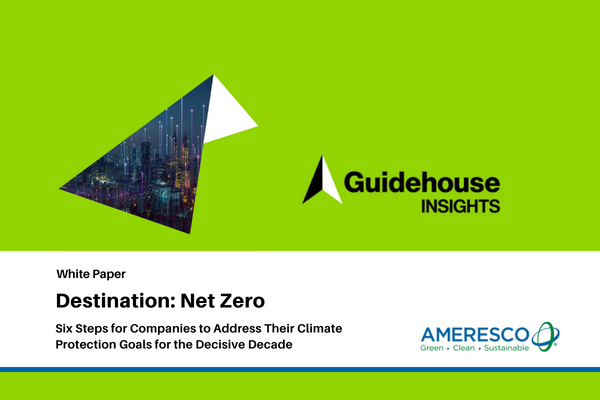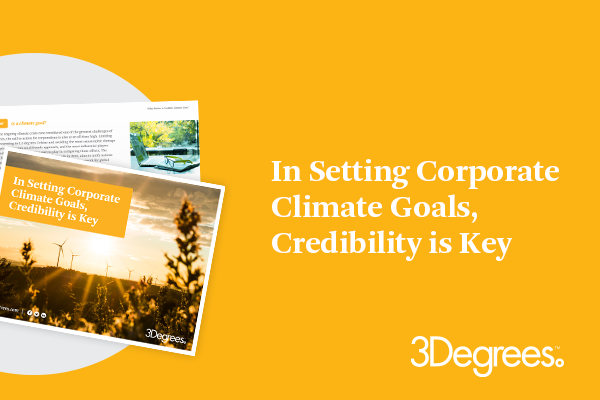Reporting & Disclosure
SBTi unveils new climate target standard for land-use and forestry sectors
The Science-Based Targets initiative (SBTi) asked food, agriculture and land-use companies to commit to ending deforestation by 2025. Read More
Destination: Net Zero – 6 Steps to Carbon Neutrality
Increasingly companies around the world are under pressure to respond to global climate change. These pressures from stakeholders and corporate best practice sharing have culminated in a turning point. This white paper outlines a step‑by‑step process for corporate leaders to address growing concerns from the investment community, broader society, and other stakeholders. Read More
Disclosing your Climate Fingerprint – the next frontier in corporate climate policy
Sponsored: Climate is a dirty business, join the fight to leave only clean fingerprints behind. Read More
How are G7 companies actually performing against Paris Agreement goals?
New analysis suggests corporations in the G7 are currently far off track, but decarbonization trends are at least heading in a greener direction. Read More
Considering recycled fiber packaging? Start with a plan
Sponsored: The roadmap for packaging manufacturers and brand owners seeking to incorporate recycled fiber into products starts with organizational leadership. Read More
The next net-zero frontier: Emissions-free supply chains
Sponsored: Any credible corporate net-zero target requires a focus on the decarbonization of supply chains – with collaboration a key driver of change. Read More
For Burlington, Vermont, going 100 percent renewable was just the start
In 2014, Vermont’s largest city became the first in the U.S. to be 100 percent powered by renewable energy. What’s happened since then? Read More
In Setting Corporate Climate Goals, Credibility is Key
The ongoing climate crisis is one of the greatest challenges of our lifetime and the corporate call to action is at an all-time high. Limiting global warming to 1.5 degrees Celsius and avoiding the most catastrophic damage is essential, and corporations are the most influential players. Read More
Renewable materials offer opportunity to meet UN goals
Sponsored: Businesses looking to align with the United Nations’ SDGs 12 and 15 can leverage renewable materials to make an impact. Read More
Delivering benefits through impactful renewable energy procurement
Sponsored: Industry leaders are increasingly prioritizing the social co-benefits of renewable energy procurement. This article explores recent trends towards higher-impact clean energy products and how your organization can maximize social co-benefits while delivering on climate targets. Read More









